Ready to turn your passion for mixology into a career? With 1800 Bartending School in Kew Gardens Hills, NY, you can earn your bartending license and gain the skills needed to stand out in the hospitality industry.
Reviews
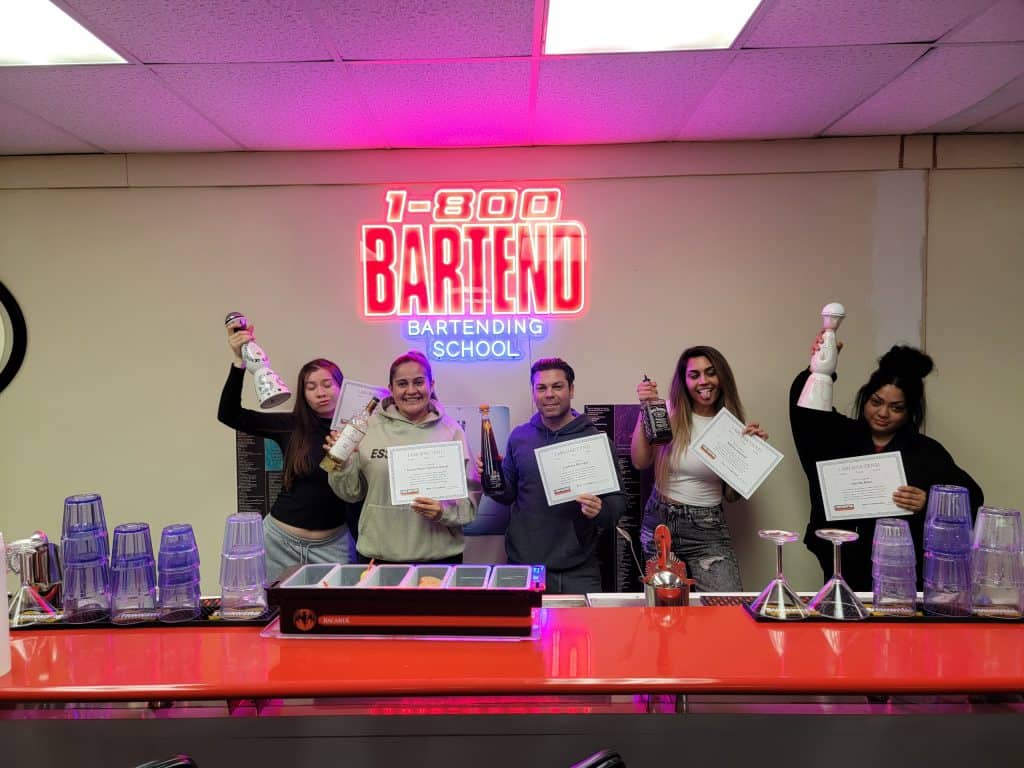
About Our Bartender Course
At 1800 Bartending School, we’ve made it our mission to help hopeful bartenders achieve their goals. Located in Kew Gardens Hills, NY, our bartending programs combine practical learning with valuable insights from industry professionals.
Whether you’re a novice or an experienced bartender looking to expand your skills, we offer an environment that supports your growth. We’ll guide you in mastering fundamental techniques, like crafting classic cocktails and serving guests responsibly. Ready for a successful career behind the bar in Queens? Contact us today!
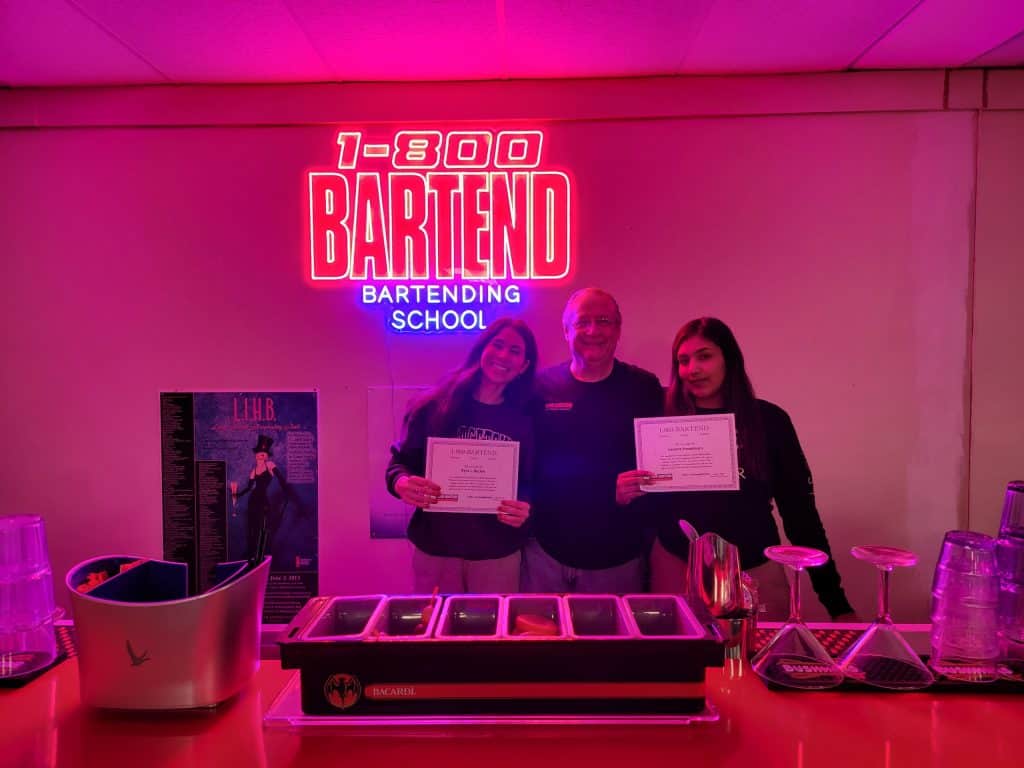
Our Proven Approach
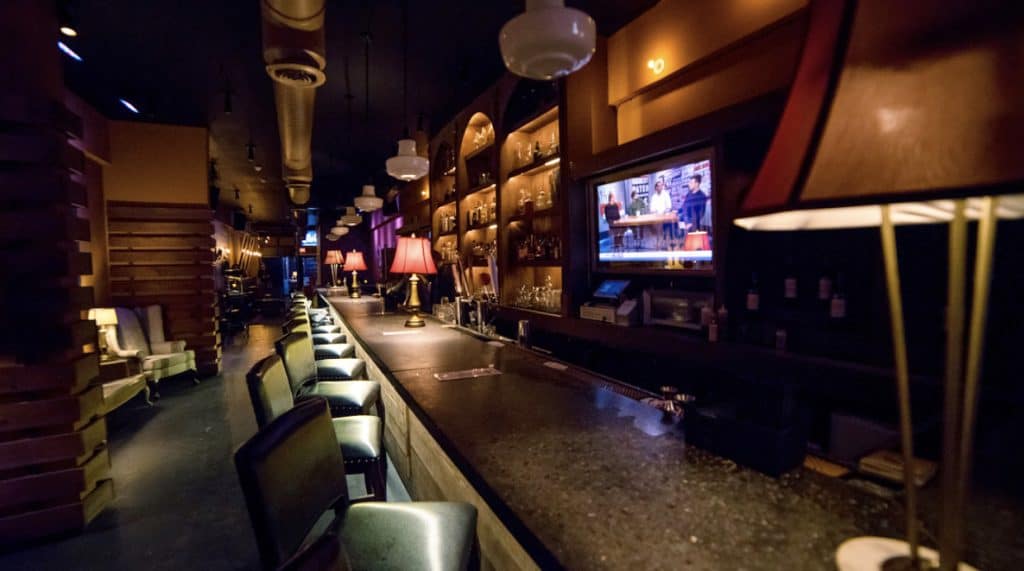
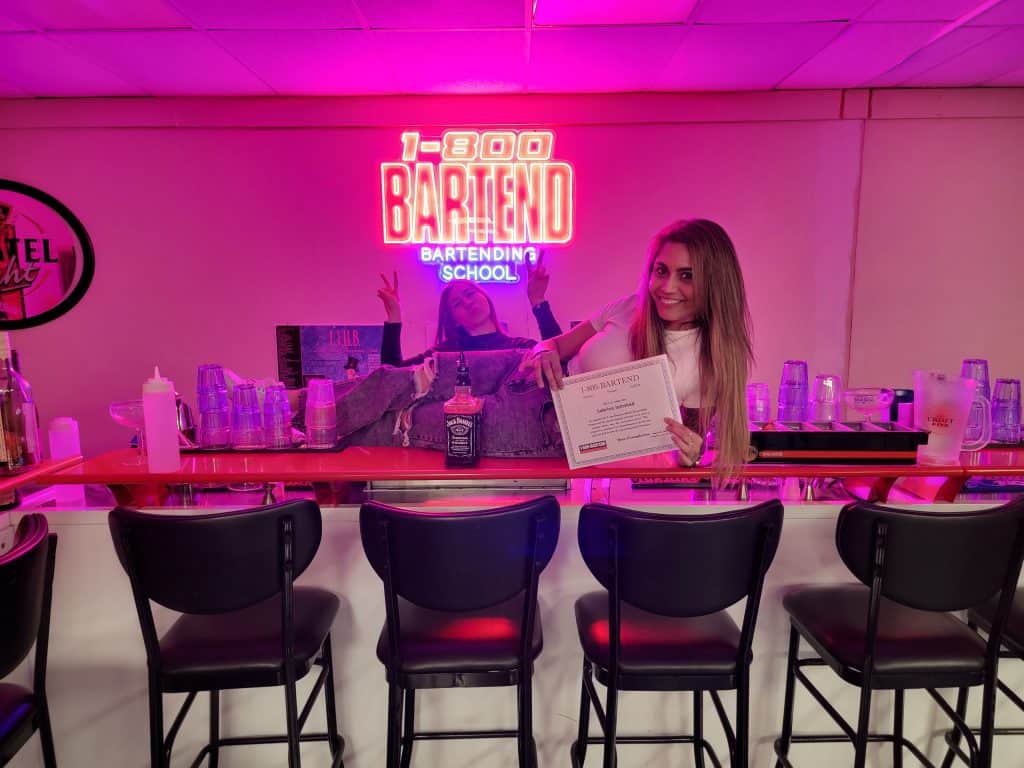
Bartending Certification Basics
A bartending license isn’t just a requirement – it demonstrates you’re ready to succeed in a fast-paced industry. A bartender permit illustrates your skills and professionalism, giving you the edge employers in Queens look for.
At 1800 Bartending School, our training covers everything from crafting drinks to understanding the legal side of bartending. From building confidence to preparing you for your first job, we’ll help you every step of the way. Contact us at 516-212-9850 today and take the first step toward an exciting career in bartending in Kew Gardens Hills, NY.
In the northwestern part of the neighborhood was the location of the 120 acres (49 ha) Spring Hill Farm. The farm was part of the Francis Lewis estate during colonial times. By 1762 the farm was owned by Colonel Thomas Willet, High Sheriff of Flushing, and was sold to Cadwallader Colden, lieutenant governor for the Province of New York. In 1763 Colden built the Spring Hill House on the property. In 1783 the property was confiscated by the government because Cadwallader’s son David was a loyalist to the monarchy. By 1894 the Durkee family owned the property and sold it to the Cedar Grove Cemetery Corporation. The Spring Hill House became the office of the Cedar Grove Cemetery, until the house was later destroyed by a fire.
In the 19th century the area of Kew Gardens Hills was known as Head of the Fly, for its location at the headwaters of the Flushing Creek (or Flushing River). Fly or vly, being the Dutch word for swamp. One of the oldest roads through the area was called the Vleigh Road, and still exists today as Vleigh Place.
Timothy Jackson operated a horse boarding stable near where the intersection of Park Drive East and Union Turnpike, or the Kew Gardens Interchange is today. On what is now the Jamaica subway yard was previously a horse race course, built by Timothy Jackson, and was known as Whitepot Race & Track. Although the train yard is not in Jamaica, it is named Jamaica because the yard feeds the subway lines which begin (or end) in Jamaica. This area was an extension of Timothy Jackson’s Willow Glen Farm for which the farmhouse was located south of Union Turnpike in the neighborhood of Jamaica that is now called Briarwood. In the 1750s, William Furman was the owner of the farm he named Willow Glen. Today Willow Lake, at the southern end of Flushing Meadows-Corona Park, retains the Willow name.
Learn more about Kew Gardens Hills.Here are some bartending-related links:
Mon - Sat:
9AM - 5PM
Sunday:
Closed
Sign up, get trained, and let’s get you behind the bar in just one week. Your future in bartending starts now!
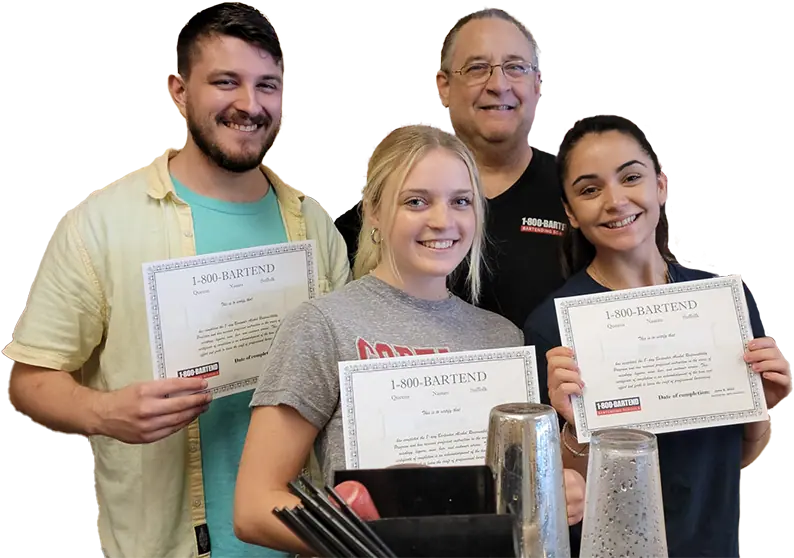
1-800-Bartend
For Students
For Businesses
Helpful Links